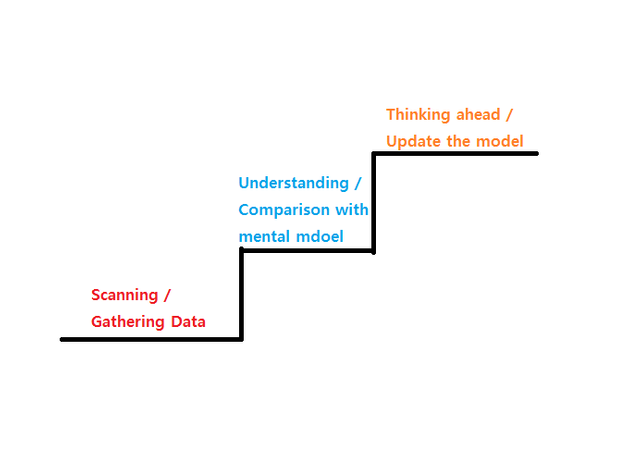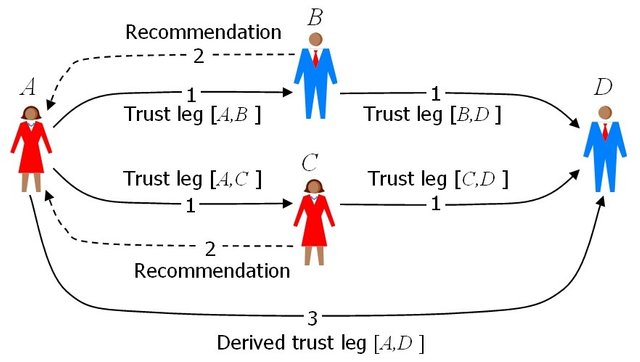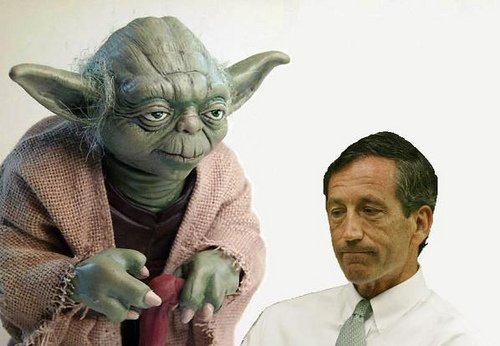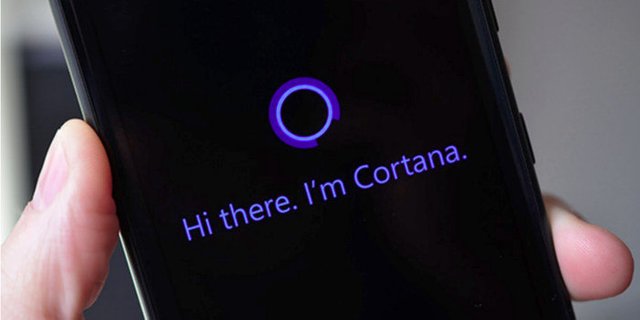The problem of ignorance (information poverty) and ideas on how to reduce it's negative effects
We see ignorance everywhere. The destructive effects of human ignorance are inescapable and all humans are effected by the decisions of other humans. As a result, I am presenting a case where human beings should avoid judging each other on mistakes made in the past but instead should focus on avoiding mistakes in the future. In addition, adding a focus on using technological means to supplement the social methods of mistake avoidance.
Living through other people's ignorance
Even if we accept our own ignorance and the destructiveness it may cause, it does not change the fact that problems we may deal with in our life may be the result of other people's ignorance. The ignorant decisions of others can impact us as much as our own decisions. The problem is twofold, where in some cases we have the willfully ignorant and in other cases we have the involuntarily ignorant. The involuntarily ignorant are not ignorant by choice but remain ignorant because they do not have access to knowledge, or because they lack the ability to process the implications of their decisions. The willfully ignorant are aware of the consequences of their decisions but do not care how their decisions effect others or in some cases out of malice are deliberately trying to damage others.
Learning from our own mistakes
We see ignorance everywhere but few people seem retrospective, are willing to look at themselves, and see their own ignorance. The ability to understand our own limitations is the first step toward transcending those limitations and it is what separates humans from other species. Human beings have learned to make tools to compensate for and transcend our innate natural abilities. It must be recognized that all human beings make mistakes out of ignorance, whether it be ignorance of so esoteric law, or of the common interpretation of esoteric law, or ignorance of social norms, or just ignorance with regard to the quality of a product purchased.
This ignorance is due to information asymmetry in many cases. This information asymmetry results in information rich and information poor definitions which I'll use to refer to the hierarchy of access to information within a social network. Wealth is not necessarily money but is assets and information is an asset granted to those who have the best access to it. Earlier access to certain information can allow a rational individual to avoid mistakes, to mitigate their risks, while others who receive late access may be forced to accept higher risks and live with damaging mistakes.
Learning from the mistakes of others
It's important to learn from the mistakes of others as a way to avoid the same pits, traps, or mistakes that others have made. People who have been in a similar environment as ourselves for a long period of time may have experiences which can be learned from. These people may not always spell it out for us telling us what their experiences are so in many instances we may have to use our own abilities of deduction to piece scenarios together. In some cases we may only have a clue, but it's these clues which allow us to detect patterns, and if we can see that certain behavior patterns lead to negative outcomes in certain environments then we can use deduction alone to find the possible mistakes made by others.
Avoiding mistakes from a consequentialist perspective
If you are a consequentialist then you recognize that there is no absolute list of right and wrong actions or fixed paths to success. What we can figure out as consequentialists is that certain actions are of greater risk than others, of greater benefit than others, fit into our priorities or preferences better than others, and we can create our preferred options ranking based on that.
Example 1.
As an example, suppose you prefer to avoid prison, make lots of money, and be respected/loved? If you have these preferences then you would have to give ordinal precedence to the behaviors and lifestyle choices which you deem is most likely to allow you to reach that. If you for example break certain laws then you can know that the consequences for breaking certain laws are much more severe than others which means a much higher likelihood of a long prison sentence if you get involved in it. If you do certain behaviors or activities and get caught then you may know it could be harder for you to be respected or loved by the people you admire in the future. As a result you may decide that it's not in your interest socially to alienate yourself by adopting behaviors which would insult your group, whether it be your friends, your family, or complete strangers you want to impress.
Example 2.
In this example suppose it is your goal to be famous, to be rich, to be loved by as many people as possible? If you have these goals then as a consequentialist you will have to set your priorities according to how people think of you on your stage. Stage meaning the place where you are most known, so an actor would have a movie career, an artist would have the art world, the political would have the political stage, but in general if someone is famous, a celebrity, or trying to be liked in their community then they are on a stage. Celebrities must appeal to their audience but it may not only be for money, but also for social reasons. People in general love to be loved, and consequentialists are no different.
The same general process would go into decision making. The consequences we want are what would help us to set our priorities for behaviors. The consequences we don't want are what would also help us set our priorities for behaviors. Some behaviors are very likely to lead to consequences that we don't want, and these behaviors are considered very high risk. Very high risk behaviors which also are of very low reward would in most cases be seen by a rational consequentialist thinker as ignorant or stupid, but how would someone even be able to measure risk if there isn't access to enough information to be aware of the risks in an environment?
Situation awareness and limited perspective

So how does anyone avoid mistakes? The point of these two examples were to show that what is or isn't a mistake depends entirely on the preferred outcome of the individual. In this case from a consequence based perspective the only way to determine if a choice or decision was a mistake is to analyze the outcome after the decision has been made.

Ignorance comes in as a result of the fact that there is a fog, where an individual can only be aware of so much at any given time, and all consequences cannot be seen from the first person perspective. There are ways to mitigate this but they require having advisers who can be trusted.
The trusted adviser approach

One approach which I use myself is that I do not make all of my decisions by myself. I recognize that my perspective on any situation is rather limited and I seek out advice from individuals who care about my fate or who have a stake in my future. These individuals act as an external mind for me so that I can avoid bad decisions. In exchange, I also give the same kind of advice to others when I'm the one in the position to have the knowledge first.

In this way it is possible to mitigate at least some of the risks of being information poor but it also introduces additional risks. How can you know for certain that your advisers can be trusted? Because your advisers are humans, and humans can be easily corrupted, how do you know some of your advisers are not spies trying to goad you into making bigger and more frequent mistakes? On this point, it's a highlight to the flaw of having only human advisers.
Mitigating the risk of human advisors by using intelligent agents

And this is where intelligent agents come in. Intelligent agents do not have to be human and do not have to come with the same risks. These advisers can give you suggestions or recommendations based entirely on algorithms, acting as a learning conditional preference network, a decision support engine, or a moral search engine. These services are the services human advisers typically provide so that human beings can avoid mistakes but these are also services which can be provided in a lot of cases by artificial intelligence and in a way where you do not have to trust the adviser not to be a spy or to have hidden motives.
References
- https://en.wikipedia.org/wiki/Ignorance
- https://en.wikipedia.org/wiki/Situation_awareness
- https://en.wikipedia.org/wiki/Bounded_rationality
- https://en.wikipedia.org/wiki/Trust_metric
- https://en.wikipedia.org/wiki/Subjective_logic
- https://en.wikipedia.org/wiki/Ignorantia_juris_non_excusat
- https://en.wikipedia.org/wiki/Veil_of_ignorance
Really great article, very enlightened. I hope you and I can talk about this more, so don't take the following sentence as "criticism" as much as a clarification because I don't think you're "wrong" about anything. I would only say that this perspective, I believe, welcomes the interpretation that there is person A who is "ignorant" and person B who is "not ignorant." In fact this is required for there to be a net asymmetry between two people. Again, this is not what you are saying, but I do believe what you are saying welcomes these assumptions, which is the only reason I want to clarify (and not to wag my finger at you and call you names). The evidence does not indicate to me that there are net asymmetries between humans. We all have a certain amount of information, the information we have is inherently imperfect due to the nature of perception and the universe, a certain percent of our information is high quality (closer to reality) and a certain percent of information is low quality (farther from reality). Individuals know more about certain things than other people, but those other people know more about certain other things. To return to the Prison example, few would say that people wind up going to prison because they are uninformed about the prospect. In fact, the individual who claims that people go to prison because they aren't aware it is a possible consequence of their actions are themselves the ones likely to be in a state of informational poverty. They are not informed of the life circumstances and economic realities of a person who winds up going to prison for non-violent crimes. For them, the cost-benefit analysis of committing a crime v. winding up in prison often makes perfect sense. I think this is why your argument that we should forgive people's mistakes is so strong because 1. mistakes due to informational poverty are not mistakes at all, and 2. the reality that none of us are immune to informational poverty makes the determination of a mistake largely impossible.
Thanks for writing this great post. I much prefer these types of articles to the incessant "How to make mad $$$ on Steem." Keep up the good work.
Downvoting a post can decrease pending rewards and make it less visible. Common reasons:
Submit
I'm one of the few who would say that in many cases the choice of crime a person commits has everything to do with the knowledge a person has of the justice system, knowledge of the laws, knowledge of sentencing trends, and knowledge of social norms. In the end it's a matter of what a person knew prior to committing to a certain behavior about what the expected outcome would be. There are more laws than most people can know, and more rules exist that are unwritten that many people don't know. People break the law and break the rules all the time merely because they were not aware of that law, or they were aware but thought it wouldn't be enforced, or they broke etiquette without knowing the social rules.
I think people who are of closer social proximity to the justice system may know a bit more than people who are distant. I would say when it comes to avoiding long prison sentences it requires not just processing the information from various sources into useful knowledge but it also requires knowing our position in society. Good positioning can protect some people from long prison sentences while not so good positioning can subject others to long sentences for the exact same crime because society itself is biased.
You make an interesting point here. None of us are immune to information asymmetry. I make a distinction between information poverty and information asymmetry. A person in information poverty is an uninformed person, a person without enough quality information to draw from to make a good decision.
You say mistakes due to information poverty are not mistakes at all? But I think you and I cannot really be the judge of if it is a mistake to the person living the consequences. The only person who can judge that is the individual who has the first person perspective who gets to live out the consequences of the choice. We can only look at their choice and say that if we were to make that choice that we would have considered it a mistake because we would not want to be in their shoes.
So only if that individual reaches the conclusion that it was a mistake based on the outcome then it was a mistake to them. But from our perspective we cannot judge them or whether or not it was a mistake for them because we cannot know exactly what they experienced as an outcome of their choice. The best we can do as an adviser is to gather enough information about them to know what are their goals, preferences, dreams, ideals, wishes, and take these into consideration when recommending for them a course of action to allow them to meet their destiny with the least cost to themselves and or ourselves.
For some people you would be right that maybe they made an informed decision and willingly accept the consequences because they expected it. On the other hand unexpected negative consequences may lead to the conclusion that it was a mistake. So really we can only ask the person who made the choice if at that point in time they think it was a mistake.
Thanks for reading my article and contributing to our discussion.
The best use of the Steem blog in my opinion is to treat it as a blog. Sometimes I output a stream of thoughts and ideas, or write about common problems. On the other hand, the "how to make mad $$$ on Steem" posts are often the posts that get the most likes and make the most money.
So at the end of the day, I've got the incentive to write the posts that receive the most likes and most money just as everyone else. Maybe when the network is big enough and the Steem power is decentralized enough then perhaps I could think about it differently. Also that is why I put the question to Dan about why curation has a 24/hr cutoff because I think a post like this one could trigger a discussion which could go on for weeks or months but if the votes stop after a day then it is likely by the time people discover a post like this it will be too late.
Downvoting a post can decrease pending rewards and make it less visible. Common reasons:
Submit
Oh, I don't hold it against anyone for posting articles that are geared toward making money. Not at all. I just personally don't like them.
Regarding your point on knowledge of the criminal justice system, as a lawyer and an economist I have to say that I respectfully, but wholeheartedly, disagree. I suggest you do more research on this because your statements are so patently wrong as to dilute the merit of the rest of the post. It is obviously true that many criminals and repeat offenders have a FAR better understanding of the criminal justice system than you or I do and anyone close to the criminal justice system knows this. This is, for example, how I know that you are not close to the criminal justice system. Am I right? Of course, because as a lawyer I am. In this case there is informational asymmetry between us. How do I know this? Well everyone within the criminal justice system knows that drug dealers will adjust the amount of substances they carry on them based EXACTLY on the limits specified by law. Because those limits are "hard" being over or under them by literally grams can mean big differences when it comes to sentencing. How could they do this if they weren't aware of the laws? Did they read the statute? Obviously not. But who does? Do you know what those limits are? Well every drug dealer does. This is informational asymmetry and you are in a state of "informational poverty" by definition. To suggest that people who sell heroin, cocaine, prescription medication, rob banks, etc. don't know that what they are doing is a crime is actually quite insulting to them. Note, I am not judging them here. I am not saying that selling heroin is wrong. I am merely saying that a heroin dealer is well aware that selling heroin is illegal. That's why they do it in secret.
As an economist, on the other hand, I do know that there is informational asymmetry between populations that can lead them to commit crimes, but they are far from what you listed. I have been upper-middle classed (and white) my whole life and I can tell you that one of the many privileges afforded to us is that we really don't need to know what the laws are. Do you think any of my friends know what types of guns, knives, and drugs are legal to carry around? Haha, yeah right. We don't know the laws! As long as we don't murder, assault, or steal from people, we're not going to jail. In this case, casting us as the ones with "informational wealth" with respect to the criminal justice system is nonsensical. What we have informational wealth in are things like "occupational information" and "network information." We are able through our family and communal connections, our innate intelligence, and the educational opportunities available to us to pursue occupations that are not deemed "illegal" by authorities. Those that don't do that either don't have the information to do so (informational poverty), don't have the desire to do so (not likely) or do not have the ability to do so (highly unlikely).
Downvoting a post can decrease pending rewards and make it less visible. Common reasons:
Submit
Excellent article! I consider too that now information is strongly distorted and algorithms for artificial intelligence which will verify authenticity of information are necessary.
Отличная статья ! Я тоже считаю что сейчас сильно искажается информация и нужны алгоритмы для искуственного интелекта, который будет проверять подлинность информации.
Downvoting a post can decrease pending rewards and make it less visible. Common reasons:
Submit